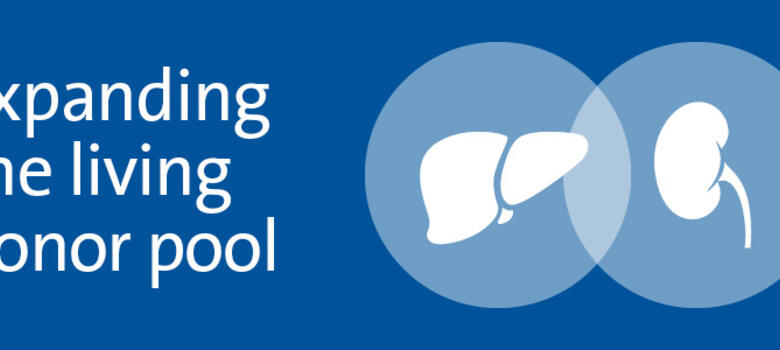Duke has recently added more options to increase access to living donor kidney transplant through paired donor exchange (PDE). This exchange allows for kidney swaps when a living donor is not a match for a friend or loved one or wants to help their recipient find a kidney that better fits their needs. Duke has now partnered with the National Kidney Registry (NKR) to expand PDE offerings.
Gayle Vranic, MD, MSCR, director for living kidney donation at Duke, has already seen these new options for donors facilitate an increase in living donation. “PDE allows more donors — including some who may have been turned down by other centers — to help their friend or loved one, even when they’re not a match,” Vranic says. “PDE allows more people access to donation. We knock down as many barriers as we can to help our donors meet their goal of helping someone suffering with advanced kidney disease or on dialysis.”
Voucher and remote donation
Patients in need of a kidney transplant are encouraged to find a friend or loved one willing to donate. However, the donor may not be a match. “To donate directly to someone, you have to check all the boxes: blood type, HLA [human leukocyte antigens] tissue match, age, size, ability to travel to Duke, and availability on the same day when the recipient needs the transplant,” says Vranic.
The advanced voucher option allows a donor to donate and give their intended recipient a voucher to redeem for a living donor when they are ready for transplant. Remote donation allows donors to donate at any of the more than 100 NKR centers in the United States on behalf of their recipient, avoiding expensive travel and staying near their existing support network. Their kidney then goes to someone with kidney disease who is a great match, and their intended recipient receives a voucher for their own living donor transplant.
National Kidney Registry and living donation
Since 2008, the National Kidney Registry has facilitated more than 9,600 transplants. The organization works to educate and support living donors and increase living kidney donation through a database of recipients and potential living donors.
Vranic encourages potential kidney donors to consider Duke. “Many people think that if you’re turned down at one transplant center, you’re not a candidate for donation anywhere else,” she says. “Every center has different criteria and options available for potential donors. Living donation provides the best outcomes for our patients, and we are here to support our donors in making that happen.”

